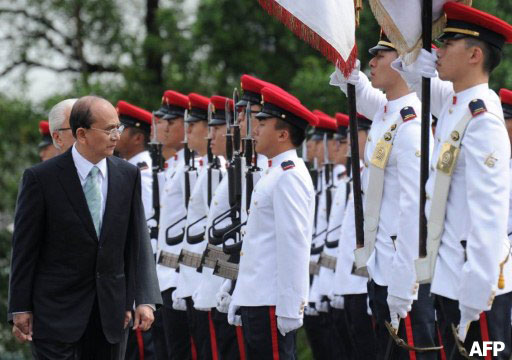Burmese President Thein Sein signed an economic agreement with Singapore on Monday to receive advice in financial management, monetary policy and urban development. He also said Burma would eventually like to create a stock market, according to reports in the local press.
 Burma is moving fast to transform its antiquated financial system in a range of areas, including economic planning, central banking, trade facilitation and legal reforms, according to a statement issued on Monday by Singapore’s Ministry of Foreign Affairs. Thein Sein wrapped up a four-day official state visit to the country on Wednesday.
Burma is moving fast to transform its antiquated financial system in a range of areas, including economic planning, central banking, trade facilitation and legal reforms, according to a statement issued on Monday by Singapore’s Ministry of Foreign Affairs. Thein Sein wrapped up a four-day official state visit to the country on Wednesday.
A former general in the military junta that ruled Burma for two decades, Thein Sein was quoted as saying in an interview in the Straits Times newspaper that his government prioritizes peace and stability over economic development.
Burma, once it brings its financial system and laws up to international standards, has a rapid growth potential, observers say, but for now establishing more democratic reforms, more reliable business regulations, a stable foreign exchange system, and the rule of law are pre-conditions to serious business investments by international companies, which nevertheless are lining up to enter the country when conditions improve.
The International Monetary Fund said on Jan. 25. that Burma’s economy may grow 5.5 percent in the 2011-2012 fiscal year and 6 percent in 2012-2013 on commodity exports and higher investment.
Singapore and other members of the Association of Southeast Asian Nations repeated a call this month for Western nations to lift sanctions against the former military dictatorship. Singapore was Burma’s third-largest trading partner in 2010 behind Thailand and China, said Voice of America, quoting statistics compiled by the European Union. Some members of the EU are calling for a removal of some sanctions after Burma’s April 1 by-election, provided it is free and fair.
Thein Sein, in a series of meetings with Western foreign ministers and high-level officials, has been pushing for the removal of Western sanctions. During the past year, he has granted amnesty to hundreds of political prisoners to achieve national reconciliation and repeated statements that achieving peace with ethnic armed groups is now his highest priority.
Hla Maung Shwe, vice president of the Myanmar Chamber of Commerce and Industry, said in a Jan. 27 interview in Hong Kong the end of sanctions would “have a huge impact on our economy.


